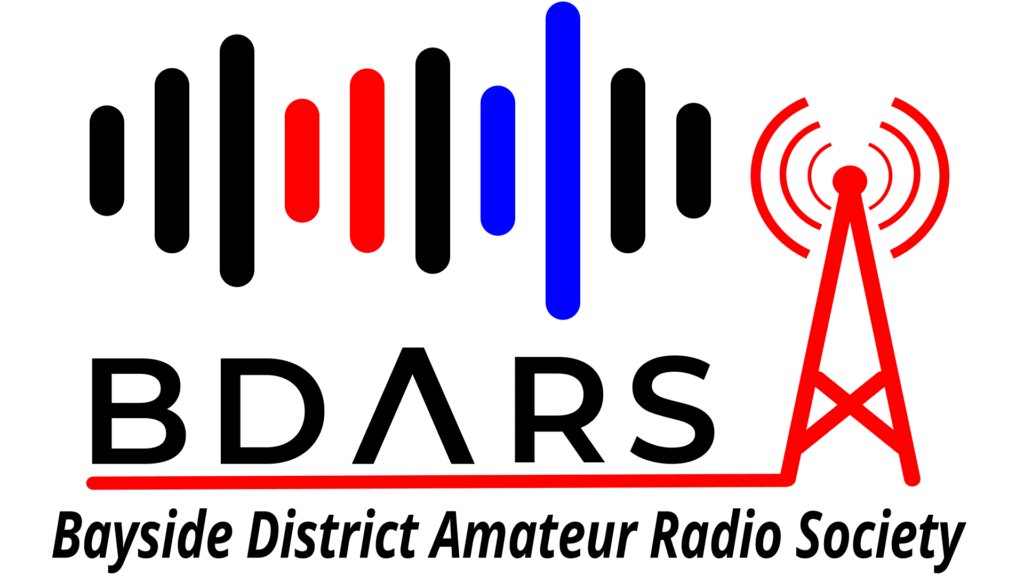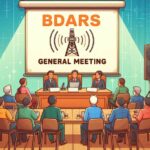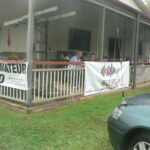Amateur Licence Classes
In summary there are three classes of Amateur licence for individuals; Foundation, Standard and Advanced with examinations of increasing difficulty. The syllabus for all these licences is readily available from ACMA, and members of the Society are available to assist students achieve their goals.
The time taken for a training course at entry level, that is a Foundation Licence, is typically around 12 hours, and the requirements are not onerous. It is not necessary to learn or have knowledge of Morse Code (CW) to obtain any grade of Amateur Radio licence. This requirement was abolished many years ago but CW as it is called, is still used by a vast number of operators around the world. There is also recognition for prior learning so more qualified persons need not be deterred.
The Society conducts classes and mentoring programs for new members to gain their radio licence and to upgrade their current licence.
We run license training/examination events approximately every quarter. Our assessors are Eddie VK4TJE and Bryn VK4GF.
Provisional Exam Dates for 2024:-
25th May, 24th August, 23rd November.
The exams are currently held in Room T7 in the Alexandra Hills State High School as we can use two adjoining demountable rooms with projector and whiteboard. As kindly provided, the society has been using this facility for over thirty years .
There will be tea and coffee available but candidates are responsible for providing a light lunch for themselves. Vehicle parking is available in the front administration car-park. Please do not use the rear car-park as you may become locked-in.
The exams event starts at 0900, with room access from 0830. The general form is for an informal review of learning with the candidates, Q&A’s, and a practical demonstration in the morning, and then the exams will start after lunch.
The suggested study base is the Radio Electronics School website (http://www.res.net.au) and follow the prompts for each level of exam. Particular notice should be taken with the Practical exam videos as the required pass mark percentage for this exam is 100% and all theory or Regulations is 70%.
We do cover the practical in the morning review with a demonstration and a hands-on session – so don’t worry if you think you still needed to build a little more confidence before taking the practical assessment.
The specific dates for each exam may be changed at short notice so you should confirm the details. Generally exams are conducted about every quarter, subject to any national health issues.
We order your exam papers about fifteen days prior, and the nominations need to advised by then, so its a good idea to not wait until the last-minute and then lose out.
Please send your exam booking confirmation email to examiners@bdars.org.au with full contact details including phone number and email prior to the cut-off period (as stated above).
In addition, please can all candidates email me with their full contact details, exam requirements and any other queries to my private email address:- eddiet@exemail.com.au
Thanks!
Eddie VK4TJE
Costs
BDARS offers training and exam sessions at no charge to candidates by the society, and all examiners and trainers are volunteers.
To become an Amateur Radio Operator most people need to hold an ACMA recognition certificate. This is to show that you are competent, safe and can efficiently operate a transmitter without causing interference or harm to ourselves or others. This competency is an internationally agreed condition for all hams worldwide. In Australia the ACMA is the regulator, and they partly delegate the responsibility for assessing operator’s proficiency to authorised assessors.
The ACMA don’t charge a fee for the exam, but issuing the certificate and obtaining a callsign has a fee. The new (2024) amateur class licence means that operator registration renewals are without cost. The ACMA fees are shown on the webpage link given above.
You can also optionally choose a callsign when your exam papers are submitted. There is a callsign database to help you select two preferred available callsigns. Your callsign can be kept for life provided the registration is appropriately renewed.
Additional Information
The Radio Amateur Society of Australia have produced a Welcome to Amateur Radio guidebook for prospective and newly licenced amateurs. It may be downloaded free of charge from the link below. There is a also a Foundation Licence Manual available from the WIA for a modest cost. Both these publications are invaluable for new and prospective starters in the hobby.
The Wireless Institute of Australia is over 100 years old and is the national body representing Radio Amateurs in Australia. It is also affiliated with other national organizations around the world. Amateur Radio is a truly international network.
Modes of operation : There are many modes of operation including Voice, Image, Text and Data. Activities using these modes include Earth Moon Earth (EME), Internet Radio linking Project (IRLP) , Low Transmitter Power (QRP) and Satellites titled Oscar –Orbiting Satellite Carrying Amateur Radio . Fast and Slow Scan TV and the many digital modes are also popular.
The fact is that any one individual would be hard pressed to accommodate all the amateur radio modes and activities at any one time. Specialisation is the name of the game if you wish to be at the top of the performance ladder – and help is always readily available.
Information links
Full details on how to obtain a licence are given on the website of the Wireless Institute of Australia, http://www.wia.org.au/.
ACMA amateur licence radio information page
ACMA information on amateur operating procedures
RASA information on the amateur licence regulations and procedures (and handbook)
Amateur Radio licences allocated can be found in any Wireless Institute of Australia Callbook or by searching the ACMA’s Register of Radiocommunications Licences. Call books are available from the Society and the WIA bookshop.
The Society can assist prospective, new and older licence holders in all licencing matters. Please contact the secretary.



